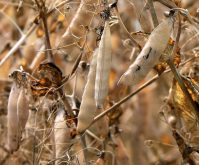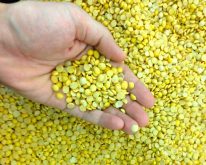Beijing | Reuters — China will complete a new national crop germplasm bank this year, the agriculture minister said Wednesday, to boost the country’s capacity to develop new crop varieties and enhance food security.
The bank has a designed capacity of 1.5 million copies, almost four times the existing one, and will be the world’s largest, the minister of agriculture and rural affairs Tang Renjian said in a statement on the ministry’s website.
China’s top policymakers said last month that the country’s seed sector is vital to guaranteeing the country’s food supply, a long-standing priority that has received renewed attention since the COVID-19 pandemic.
Read Also

Dryness poised to threaten Saskatchewan crops
Crops in Saskatchewan are developing in opposite directions, the province’s latest crop report said. Growing conditions in the province vary, with some areas receiving enough rain while other locations are experiencing crop stress due to hot, dry conditions.
China’s seed sector is fragmented and its companies lack the extensive germplasm collected by major multinational crop firms.
Germplasm is living genetic material, such as seeds or tissues, that are kept for breeding and research. A rich collection of germplasm allows breeders to select for more diverse traits when developing crop varieties.
China’s current seed bank cannot meet development needs, said Tang on a visit to the Chinese Academy of Agricultural Sciences in Beijing, where it is located.
“The new national crop germplasm resource bank must not only be well established, but also be used well,” he said, adding that China’s seed industry lags the innovation ability of those in developed countries.
China must ensure it maintains its competitive advantage in rice and wheat varieties, while reducing the gap with other countries in corn, soybeans, pigs and dairy cows, he added.
— Reporting for Reuters by Dominique Patton in Beijing.














